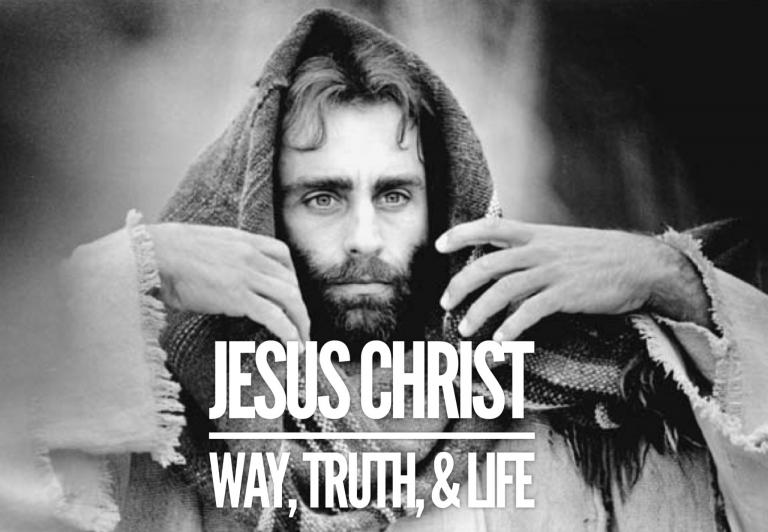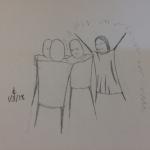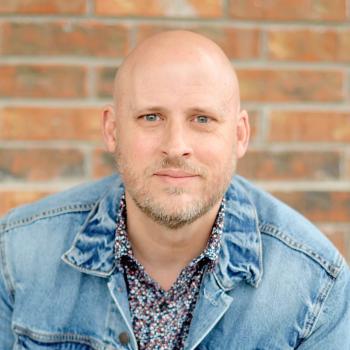This is a little bit of family fun that was completely improvised. Like most loud families, we get into moments like this and we all try to upstage each other to see who can force the most laughs.
By the end we discover Cruz’s faith is richer because of Star Wars Stormtroopers?! To be fair, I don’t know many preachers whose spirituality is not informed by coffee, especially a smooth espresso roast.
So this should be a fun video, no matter if you like coffee, Stormtroopers, or just good family banter. I have taken the opportunity to write a piece that I’ve wanted to share for quite some time. Enjoy the family fun! If you have a coffee break, enjoy my piece on the myth behind Star Wars.
Video: Cruz, Coffee, & Stormtroopers
https://www.youtube.com/watch?v=1EhjI7Gv_R4The new Star Wars Episodes are tracking the story of a Stormtrooper who defects and joins the Rebel Alliance, known as Finn. Some aspects of his story that might seem familiar for a good reason.

i. One of the key plots in Star Wars is the Hero’s Journey
1. Star Wars is based on a mythological framework. Carl Jung was a psychologist and a contemporary of Sigmund Freud. They both were fathers of psychology. However, Jung also studies anthropology and spirituality. He proposes that there are common stories and characters in various myths worldwide.
2. Joseph Campbell takes Jung’s ideas, and traces a common myth that he believes is found in various histories, the Hero’s Journey. This is easy to find on the internet. Because these sites may often be spiritual in nature, I would recommend exploring reputable sites, at least ones with an .edu at the end of the address.
3. It is “common knowledge,” but it may not be well-known, that Campbell and George Lucas consult together at the end of the first movies (Episodes IV-VI). Once Jung and Campbell are better understood, variations of this plot and its archetypes (characters) are repeatedly visible in Star Wars. Bear in mind that Jung, Campbell, and Lucas consider these myths to be a universal or global stories.
4. What are the implications of such a grand-scale framework for categorizing all of the myths and spiritual stories in the world, including The Story of our Lord? This question is difficult to answer because there are so many different world views. I will just explore a couple of answers that are actually at odds, although many people find themselves somewhere in between.
ii. There is a reality in our age known as pluralism
1. Pluralism should not be confused with the polytheism of the ancient world, when many deities were worshipped. Polytheism could be multiple religions over a vast area like the ancient Roman Empire. It could also mean many deities in one religion, like the Greek Pantheon. The key is that each ancient territory usually adopts a primary religion.
2. “Religious pluralism, on the other hand, is the belief that the differences between the religions are not a matter of truth and falsehood, but of different perceptions of the one truth; that to speak of religious beliefs as true or false is inadmissible. Religious belief is a private matter” (note 1). Religious pluralism is different than polytheism, because we are no longer seeing a predominant regional religion. We’re seeing many religions rise, many forms of spirituality, including people classified as “nones” (no religion).
3. Pluralism postulates that every religion is special, so the unintended consequence is that no religion is. Pluralism fits with frameworks like Campbell’s Hero’s Journey and Star Wars. Almost everything that I have stated so far is being taught in our public schools and colleges. I became aware of this in seminary. There is a Christian response that should be considered.
iii. There is a phenomenon known as preparatio evangelica
1. There is evidence over time of other cultures that seem to be prepped to receive the Full Gospel. This phenomenon is as old as Christianity. Some of the Early Church Fathers compare the truths in the Greek philosophies with those of the Hebrews and Primitive Church. A preparatio evangelica is “God’s work in the pre-Christian heart that prepares a person to receive and respond to the gospel message” (note 2). This should not be confused with the protoevangelium, the first Gospel message found in Genesis 3.15.
Whole people groups are often ready to receive the Gospel before any Christians reach them. For instance, although there are many differences between Muslims, Jews, and Christians, there is at least one similarity. Islam emerges after Christianity and Judaism as one of the earliest monotheistic faiths (believing in one deity). In the ancient world, a one-deity religion is rare. So is a monotheistic religion experiencing a preparatio evangelica?
2. Then there is the question of ancient writings that are not scriptural (non-canonical). Other books are quoted in the Bible. Numbers has a quote from the Book of the Wars of the Lord. Joshua and David quote from the Book of Jashur. Matthew and Luke are using some source that Mark does not use, the Quelle (the source or “Q”), or an Apostolic Tradition. Jude quotes from a couple of outside sources. His story of the fight between the archangel Michael and the devil is from the book the Assumption of Moses. His account of Enoch’s sermon is from the book of 1 Enoch.
John uses the term Logos, perhaps expanding on the Greek philosophy of the Ephesian known as Heraclitus, who teaches the wisdom of Logos nearly 500 years earlier (note 3). Paul not only quotes the Greeks when he preaches on Mars Hill, but at least 4 times in the NT.
3. If these quotes are in the Bible, then we must conclude that the quotes become inspired, like any other verses of the Bible! That does not mean that the books the quotes come from are sacred or canonical (note 4). If God can use quotes from uninspired writings (songs, histories, philosophies, etc.) to point people to the True Story, then can He do the same today?
iv. Is the Hero’s Myth a type of preparatio evangelica
1. The philosophy of pluralism looks at these cultural stories that seem similar to ours, and places us all on an equal plain. Pluralism uses Finn, Star Wars, and the Hero’s Journey to declare that Christianity is just another common myth – a retelling of the Hero’s Journey. Are we so jaded in the West (Western Europe and America), to think that our philosophies can explain away Christianity?
2. About 1/3 of the earth’s population is now Christian. Billions have gravitated to our Story. They have not forgotten their stories, myths, philosophies, and histories. In fact, many of their truths have helped them to recognize ours, as if charting a course toward their true harbor in the Christian faith. Think about it personally. Would anyone ever ask you to forget your personal testimony? No, it is the journey that led you to the Cross.
Pluralism says Jesus is just another example of the Hero’s Journey (probably a form of the “scapegoat” archetype).
The Spirit’s preparatio evangelica allows people groups to discover glimpses of truth, that often prepare them to receive the True Story (The Way, The Truth, The Life).

note 1: Lesslie Newbigin, The Gospel in a Pluralist Society (Grand Rapids, MI: Wm. B. Eerdmans, 1989), 14.
note 2: This section adapted primarily from Timothy C. Tennent, Theology in the Context of World Christianity: How the Global Church is Influencing the Way We Think About and Discuss Theology (Grand Rapids, MI: Zondervan, 2007), 44, 53, 56-59, 282.
note 3: Daniel W. Graham, “Heraclitus,” in The Stanford Encyclopedia of Philosophy (Fall 2015), ed. Edward N. Zalta, accessed March 3, 2018, https://plato.stanford.edu/entries/heraclitus/.
note 4: Tennent, 58.












